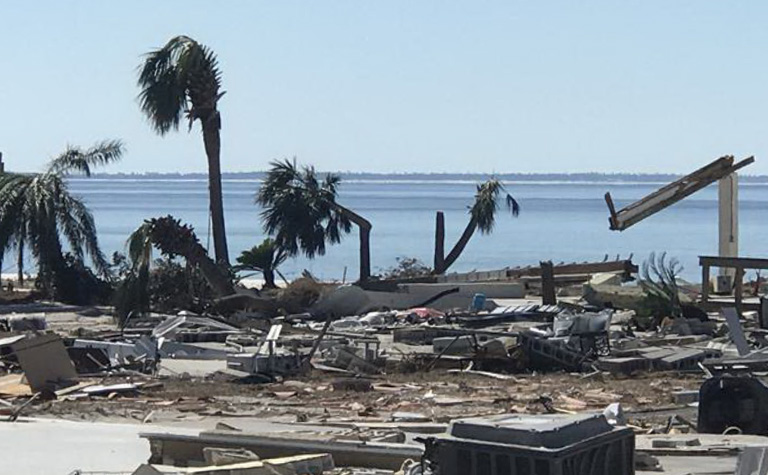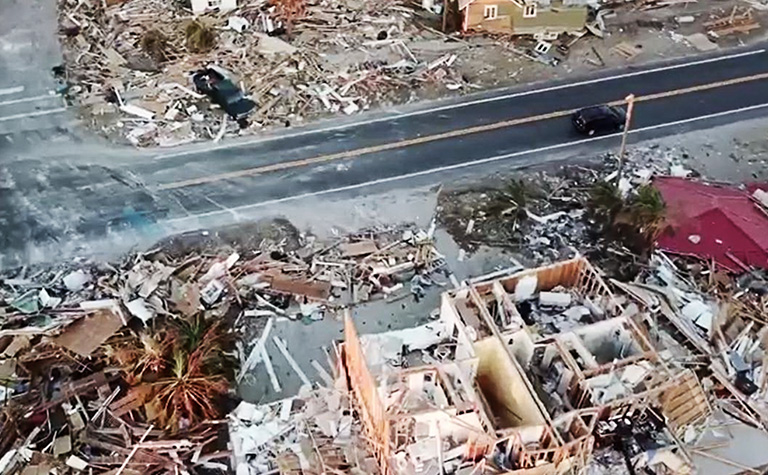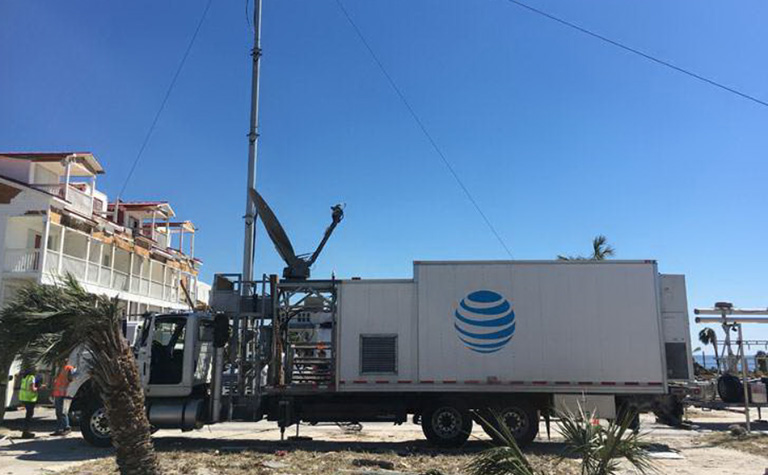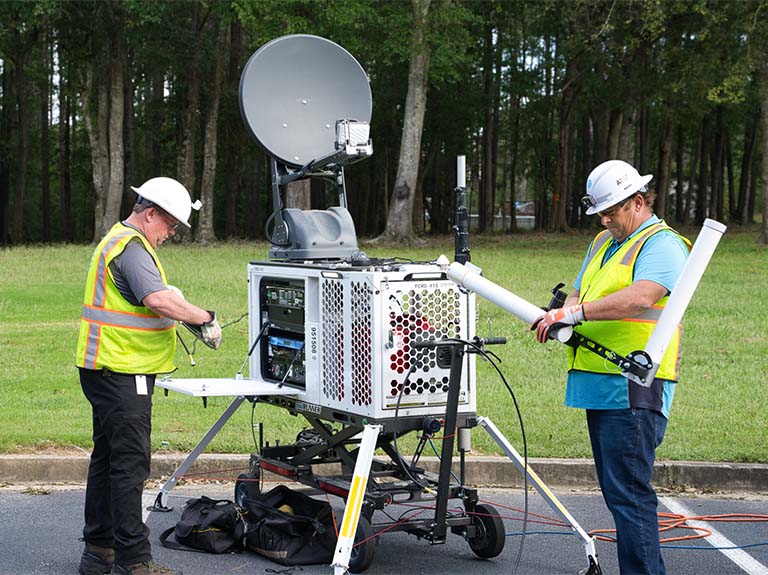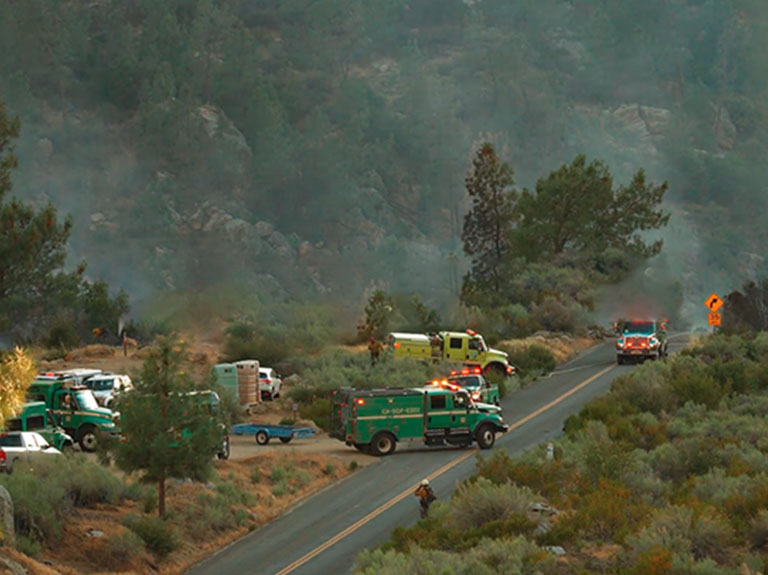AT&T Climate Resiliency Community Challenge
AT&T Supports Research at Five Universities to Assess Climate Risks and Help Boost Community Resilience – Feb 6, 2020
As part of our Climate Resiliency Community Challenge, five universities have been selected to conduct research that will help communities in the southeastern United States build resilience to climate change. Each academic institution will receive $50,000 from AT&T for projects that assess local climate risks and help local governments with climate adaptation and resilience planning. The teams will use data commissioned by AT&T from the U.S. Department of Energy’s Argonne National Laboratory and funding from AT&T to conduct innovative research on climate impacts and community responses in the southeastern United States.
The Climate Resiliency Community Challenge is part of AT&T’s Climate Resiliency Project, an industry-leading effort to evaluate and address the risks of climate change.
The five universities and their projects are:
- Appalachian State University (Boone, NC): This project will assess how socioeconomic disparities that affect rural communities contribute to climate vulnerability. The climate risk estimates produced by the team will better inform adaptation strategies, identify specific regional data needs and guide decision-making on disparities between risks in inland rural areas versus urban or coastal areas.
- Georgia Institute of Technology (Atlanta, GA): This project will leverage data provided by AT&T and other sources to assess Georgia’s in‐land flooding vulnerability under different climate projection scenarios. Using the results of the assessment, the team will explore how eco-roofs, which can reduce stormwater runoff by up to 60%, can be used to manage flood risks and safeguard vulnerable populations.
- University of Georgia (Athens, GA): This project will assess the long-term flood frequency and severity for Athens-Clarke County, GA. The county and the University of Georgia’s Institute for Resilient Infrastructure Systems will work together to develop flood inundation maps, visualizations and a modeling framework for rapidly assessing flooding pressure points at the municipal scale. These products will create an improved understanding of future flood hazards and inform long-term planning and infrastructure investment priorities.
- University of Miami (Miami, FL): This project will develop an Integrated Climate Risk Assessment (ICRA) for the city of Miami on the scale of individual lots, blocks and neighborhoods. The ICRA will enable distinctions among different vectors of vulnerability and risk, including economic, health, food, water, housing, transportation, greenness, and social and cultural dimensions. This will help decision-makers explore different options for climate adaptation and inform resource allocation and policy in a more responsive manner.
- University of South Florida (St. Petersburg, FL): This project will develop and implement a multi-modular crowdsourced Community Resiliency Information System (CRIS) in the city of St. Petersburg. CRIS will identify neighborhood-level socioeconomic and biophysical vulnerabilities, which will be combined with crowdsourced data from survey tools embedded in local populations. The system will ensure the participation of diverse communities in decision-making around preparedness, resilience and adaptation.
The universities were selected through an application process that included a review by a panel of non-profit climate and resiliency experts including Kristiane Huber, Center for Climate and Energy Solutions (C2ES); David Kuhn, World Wildlife Fund (WWF) and Zack Rosenburg, SBP.
“Climate resiliency is becoming increasingly important for all types of communities—from major coastal cities to small rural towns,” said David Kuhn, World Wildlife Fund Relationship Manager. “Data and financial support, like that provided by AT&T and Argonne National Laboratory for this competition, are essential to allowing researchers and decision-makers to better assess the risks from climate change across the Southeast and take steps to keep communities safe.”
AT&T Announces Climate Resiliency Community Challenge – June 3 2019
Climate change is one of the world’s most pressing challenges. At AT&T we’re working to assess the risks that climate change creates for our business, so that we can make smarter, climate-informed decisions for years to come. These actions will help build resilience for our business, our customers and our communities.
Our project uses the best available science and technology, so we can make data-driven decisions that improve climate resiliency. Our Climate Change Analysis Tool leverages regional climate modeling from the U.S. Department of Energy’s Argonne National Laboratory. This modeling is capable of visualizing climate impacts at the neighborhood level 30 years into the future.
Data that helps assess the risk of climate change should be available to those who need it. That’s why we’re sharing the same climate datasets we have developed with Argonne National Laboratory with universities, local governments and others to use for their own climate risk analysis.
To access the current data sets covering the Southeast United States, click here.
Together, we can build climate resiliency in our communities.
Climate Resiliency Community Challenge
In collaboration with the U.S. Department of Energy’s Argonne National Laboratory, AT&T is inviting public and private colleges and universities to submit an application for participation in a Climate Resiliency Community Challenge, which is designed to help local communities better predict, prepare for and adapt to the changing climate. In this challenge, universities will work with local governments to conduct a risk-based climate analysis using data from Argonne National Laboratory and shared by AT&T to address a problem that affects the Southeast Region. This includes areas such as infrastructure, public health, emergency management, or similar field related to community resilience. Participating universities will prepare and share a report of their findings, including proposals for potential solutions for action, with the community and online.
AT&T will provide participating universities with leading climate data from Argonne National Laboratory and up to $50,000 in funding to support the research projects. One team from each state in the Southeast Region (Florida, Georgia, South Carolina and North Carolina) will be selected by an independent panel of non-profit climate and resiliency experts.
Teams are encouraged to be creative in using Argonne National Laboratory’s leading climate data and may leverage and integrate supporting data and technology available through the university and local government. Results may touch a variety of issues, from infrastructure to public health to emergency management, to name a few. We’re looking for your ideas.
Organizations interested in participating in the Climate Resiliency Community Challenge are invited to download, complete and submit an application. The deadline for submissions is September 30, 2019.
Questions about the application should be directed to: Andrea.Brands@att.com

